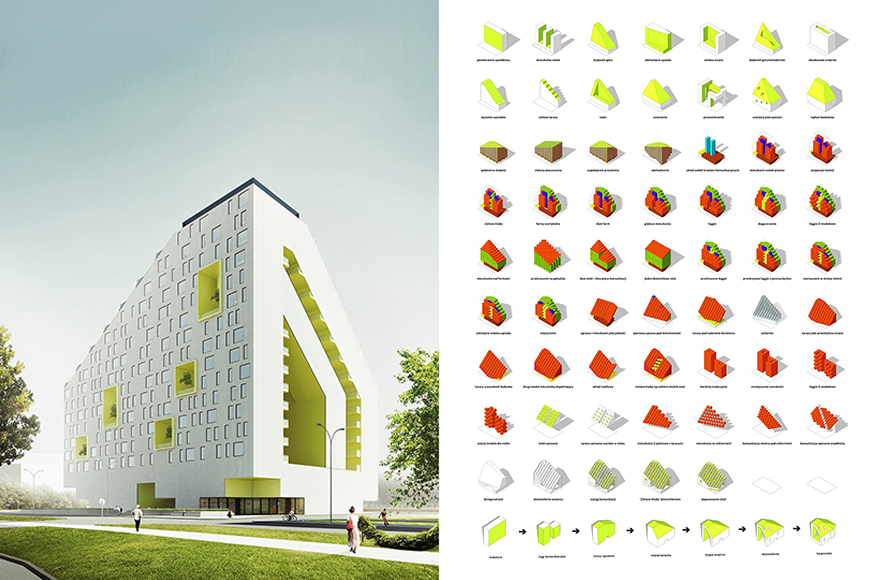März / April 2018
Poznan University of Technology
Building that grows
Aleja Niepodległości, Poznań

Poznan University of Technology
Master
13.07.2015
Hanna Michalak
Wohnbauten
Autocad, SketchUp 8 Pro, Vray, Adobe Photoshop
According to UN prospects in the year 2050, 80 percent of the population of the world will live in cities. In future, to feed the inhabitants of our planet, new rural areas will be needed. A chance for gaining new rural areas is the vertical multiplication of cultivating ones. In such layouts, urban territories of architecture alternate nature and agriculture, what can be named ‘agritecture’.
In Poland for many years, there has been a tradition of urban agriculture – garden plots in towns and cities. It still gains huge popularity because of the lack of private green areas in modernistic apartment buildings inhabited by Polish people. There are around 1 million family garden plots. The approximate number of people connected with them equals to 3-4 millions. Any attempts to change the structure of allotments meet severe protests of their owners.
The process of the creation of the form, closely connected with the function, has showed possibilities of the use of a module. The need of the implementation of the spaces, with elements of life green, that make inhabitants integrate was essential. A human being, dependent on the environment and highly skilled at its creation, must remember of psychological aspect of constructing.
Using the repetitive element, the author has created a structure composed of residential apartments with their own cultivated terraces, an inner courtyard and a service ground floor. The residential modules with garden plots, placed in terraces,create a’ mountain’ form rising overan inner courtyard. All apartments are designed as double-sided with the possibility of natural air conditioning by opening opposite windows (one on the courtyard).
The acceptabilityand the clarity of the assumptions have a positive influence on the local community that integrates in ‘Green Clubs’, lives in the system of ‘half-time farmers’. After everyday duties inhabitants have the opportunity to relax and cultivate vegetables.